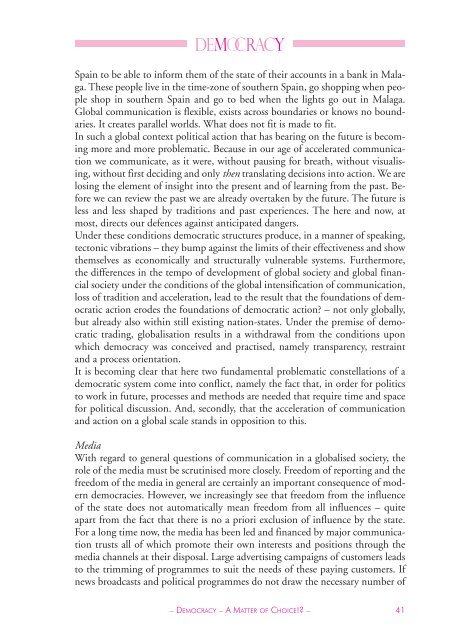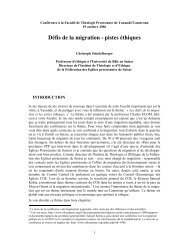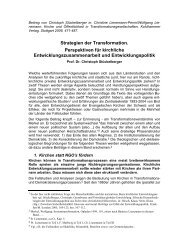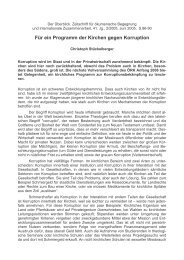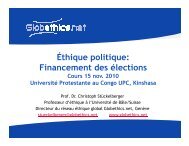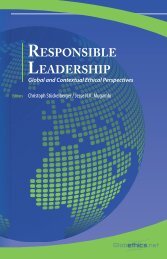BREAK THE CHAINS OF OPPRESION AND THE YOKE OF ...
BREAK THE CHAINS OF OPPRESION AND THE YOKE OF ...
BREAK THE CHAINS OF OPPRESION AND THE YOKE OF ...
You also want an ePaper? Increase the reach of your titles
YUMPU automatically turns print PDFs into web optimized ePapers that Google loves.
DEMoc rAcy Spain to be able to inform them of the state of their accounts in a bank in Malaga.<br />
These people live in the time-zone of southern Spain, go shopping when people<br />
shop in southern Spain and go to bed when the lights go out in Malaga.<br />
Global communication is flexible, exists across boundaries or knows no boundaries.<br />
It creates parallel worlds. What does not fit is made to fit.<br />
In such a global context political action that has bearing on the future is becoming<br />
more and more problematic. Because in our age of accelerated communication<br />
we communicate, as it were, without pausing for breath, without visualising,<br />
without first deciding and only then translating decisions into action. We are<br />
losing the element of insight into the present and of learning from the past. Before<br />
we can review the past we are already overtaken by the future. The future is<br />
less and less shaped by traditions and past experiences. The here and now, at<br />
most, directs our defences against anticipated dangers.<br />
Under these conditions democratic structures produce, in a manner of speaking,<br />
tectonic vibrations – they bump against the limits of their effectiveness and show<br />
themselves as economically and structurally vulnerable systems. Furthermore,<br />
the differences in the tempo of development of global society and global financial<br />
society under the conditions of the global intensification of communication,<br />
loss of tradition and acceleration, lead to the result that the foundations of democratic<br />
action erodes the foundations of democratic action? – not only globally,<br />
but already also within still existing nation-states. Under the premise of democratic<br />
trading, globalisation results in a withdrawal from the conditions upon<br />
which democracy was conceived and practised, namely transparency, restraint<br />
and a process orientation.<br />
It is becoming clear that here two fundamental problematic constellations of a<br />
democratic system �come �into conflict, � namely �the fact �that,<br />
in order for politics<br />
to work in future, processes and methods are needed that require time and space<br />
for political discussion. And, secondly, that the acceleration of communication<br />
and action on a global scale stands in opposition to this.<br />
Media<br />
With regard to general questions of communication in a globalised society, the<br />
role of the media must be scrutinised more closely. Freedom of reporting and the<br />
freedom of the media in general are certainly an important consequence of modern<br />
democracies. However, we increasingly see that freedom from the influence<br />
of the state does not automatically mean freedom from all influences – quite<br />
apart from the fact that there is no a priori exclusion of influence by the state.<br />
For a long time now, the media has been led and financed by major communication<br />
trusts all of which promote their own interests and positions through the<br />
media channels at their disposal. Large advertising campaigns of customers leads<br />
to the trimming of programmes to suit the needs of these paying customers. If<br />
news broadcasts and political programmes do not draw the necessary number of<br />
��������������������������������������������<br />
� � � � � ������������������ �<br />
– DEMOCRACY – A MATTER <strong>OF</strong> CHOICE!? – 41


